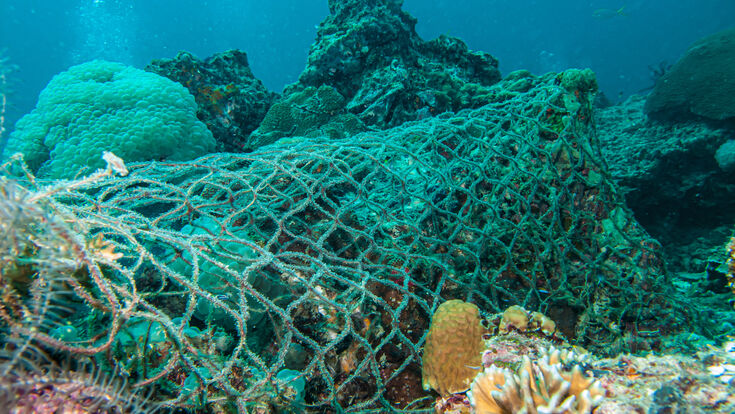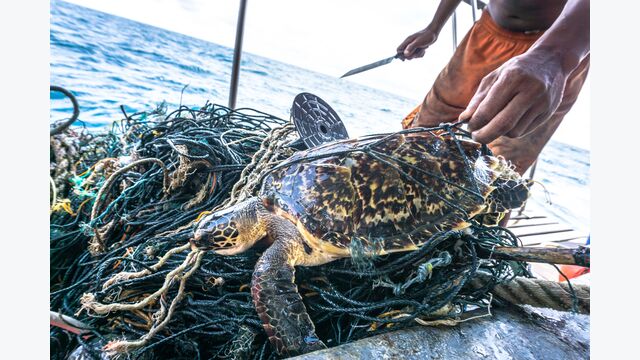Healix recycles ghost nets : Ghost(net)buster in the Netherlands

With commissioning of the Healix recycling center in Maastricht, the Netherlands, founder Marcel Alberts has declared war on so-called Ghost Nets. These are left-over, floating fishing nets and ropes that pollute the world’s oceans – which are unfortunately all too familiar from the unforgettable photos of sea turtles or other sea creatures caught up in them. Using state-of-the-art technology for plastics recycling, the aim is to turn this linear waste into a product on-site and create a circular economy. At the forefront of the process chain is a WEIMA W5.22 single-shaft shredder with hydraulic drive.
The vision
The visionary Marcel Alberts was increasingly aware of the marine plastic problem and decided to do something about it. The smart entrepreneur from Maastricht previously gained two decades of valuable experience in the fiber and textile industry, which he can use to his advantage for his project that is very close to his heart. Then in 2020 he founded Healix.
Plastic problem: ghost nets
His idea is both simple and ambitious: Collecting discarded and broken nets, ropes and cords from fishing and farming to recycle them. Unfortunately, there are more than enough of them. Healix states that ghost nets account for at least 30 percent of the great pacific garbage patch. That's the size of France – times three.
Recycled fiber products
Abandoned plastic fibers, mostly PP and HDPE, procured from national collection centers are used to create something new. The plastic waste includes fishing nets, packaging products such as big bags, ropes, particularly tear-resistant yarn and other fiber-based materials from the agricultural industry
Not even two years passed from the original idea to commissioning of the recycling center. According to Healix, the investment amount was around ten million EUR. A proper flagship start-up that even Frans Timmermans became aware of in his green Deal Climate Commissioner role. He, therefore, attended the opening as a special guest.
Albert’s goal of annually transforming up to 6,000 tons of marine plastic into granulate with Healix is also a signal towards the rest of the economy and society. "With a great deal of courage, commitment, and the right technology partners, we have come a little closer to the dream of a circular economy and a climate-neutral continent," says Albert.


